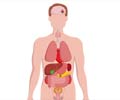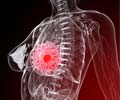A team of scientists at the University of Maryland School of Medicine in Baltimore has identified a novel gene mutation among the Old Order Amish population that significantly reduces the level of triglycerides in the blood and appears to help prevent heart disease.
"We found that about 5 percent of the Amish have a gene mutation that speeds up the breakdown of triglycerides, which are fat particles in the blood associated with an increased risk of coronary artery disease," said the lead author, Toni I. Pollin, Ph.D., an assistant professor of medicine at the University of Maryland School of Medicine.Carriers of the mutation have half the amount of apoC-III, a protein linked to triglycerides, than people without the gene variant.
Pollin said that those with this mutation of the APOC3 gene have higher levels of HDL-cholesterol, the so-called "good" cholesterol, and lower levels of LDL-cholesterol, the "bad" cholesterol.
Also, they have less arteriosclerosis (hardening of the arteries) - as measured by the amount of calcium in their coronary arteries.
"Our findings suggest that having a lifelong deficiency of apoC-III helps to protect people from developing cardiovascular disease. The discovery of this mutation may eventually help us to develop new therapies to lower triglycerides and prevent cardiovascular disease," Pollin said.
This is the first reported mutation within the human APOC3 gene that specifically blocks the production of apoC-III, causing individuals who carry a copy of the mutation to produce half the typical amount of the protein.
Advertisement
The research team, used a new approach called a genome-wide association study, or GWAS, to rapidly scan 500,000 markers in the DNA of the participants to find variations, or single nucleotide polymorphisms called SNPs, that are associated with triglyceride levels in the blood. This was followed by direct gene sequencing.
Advertisement
Some also were tested to determine if there were calcium deposits in their coronary arteries, which is a clear sign of cardiovascular disease.
"What we found is that people who have the mutation are much less likely to have any calcification," Pollin said.
The study will be published in the Dec. 12, 2008, issue of the journal Science.
Source-ANI
PRI/S















